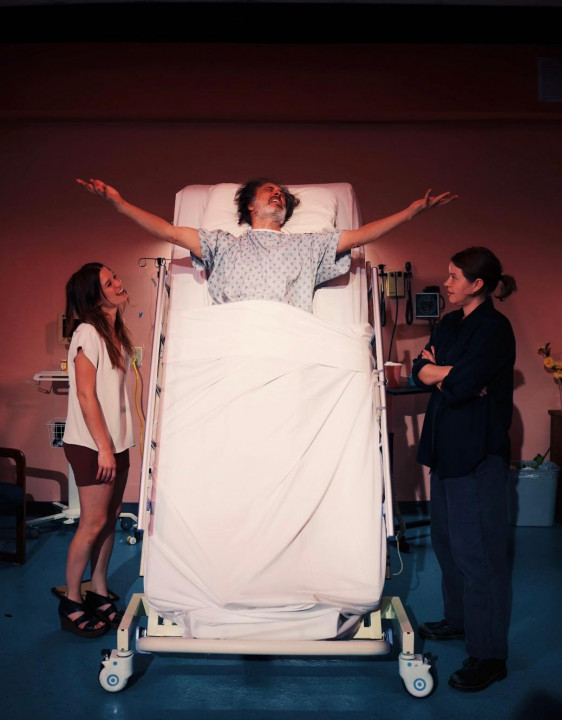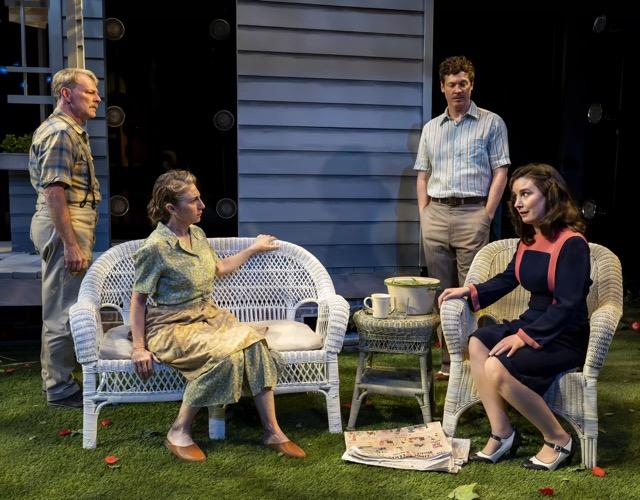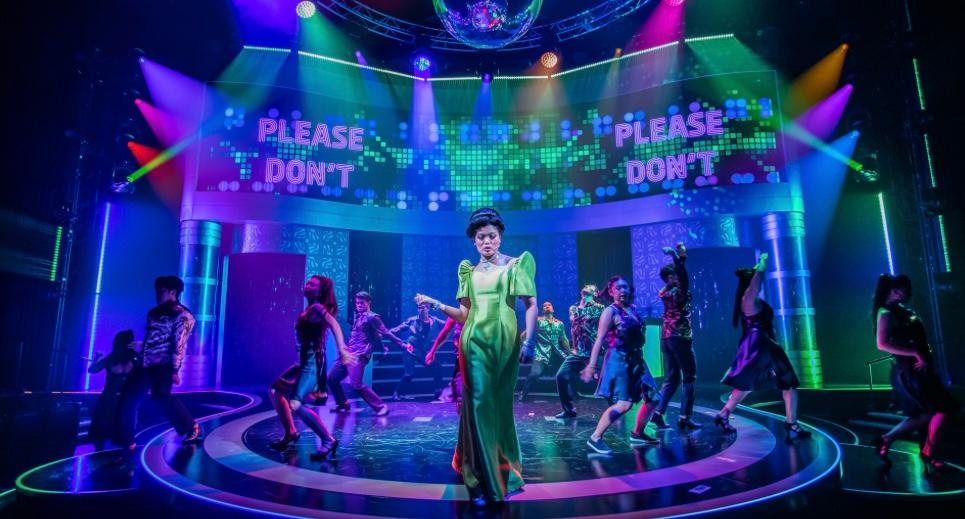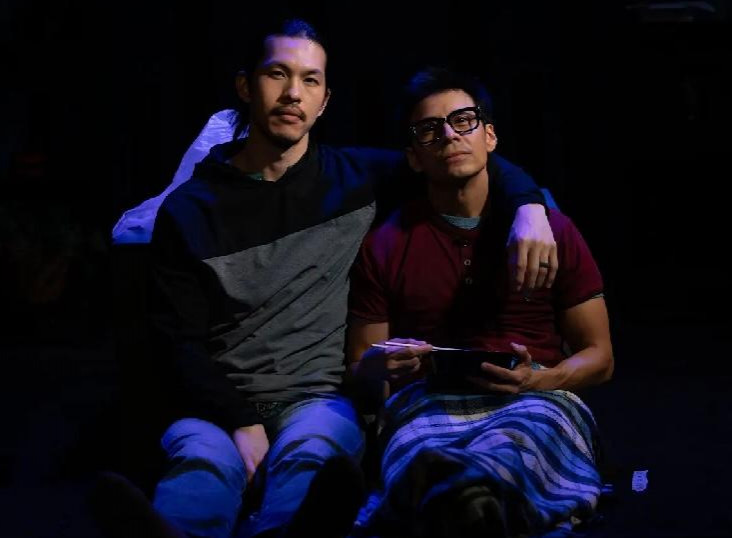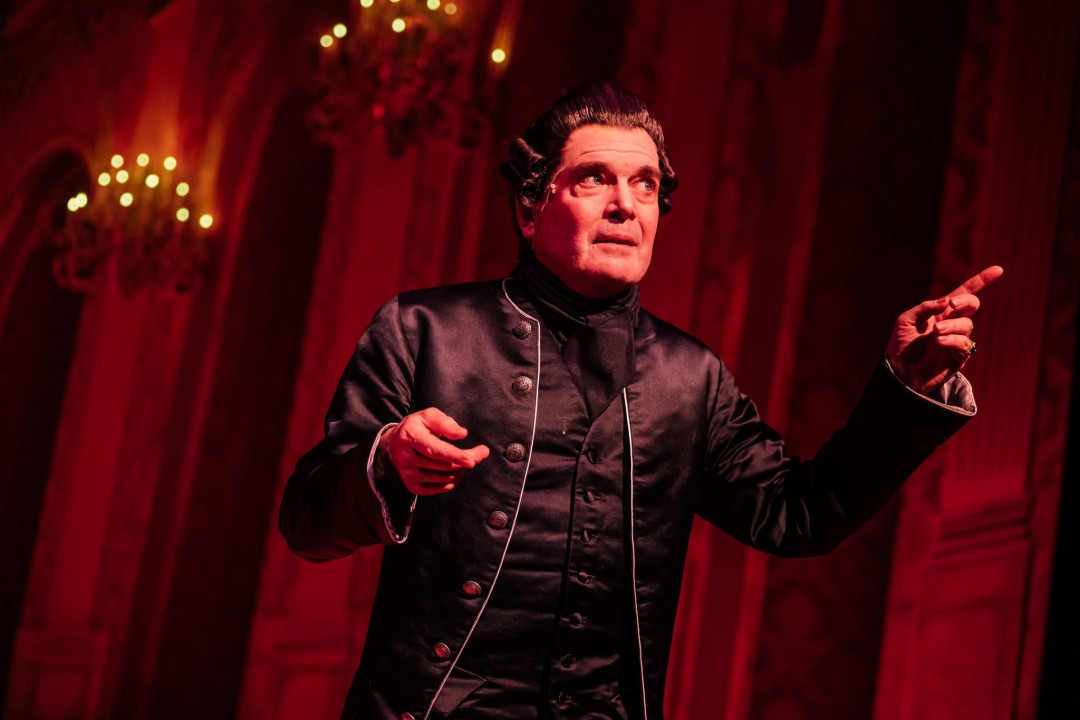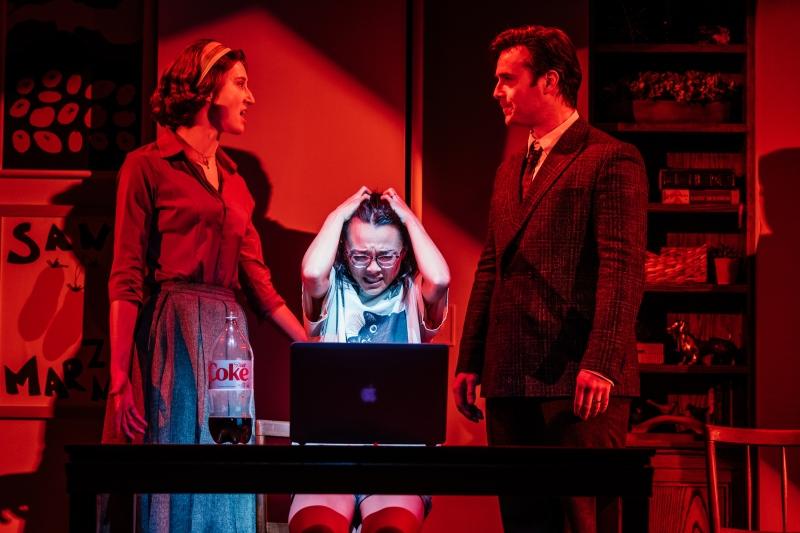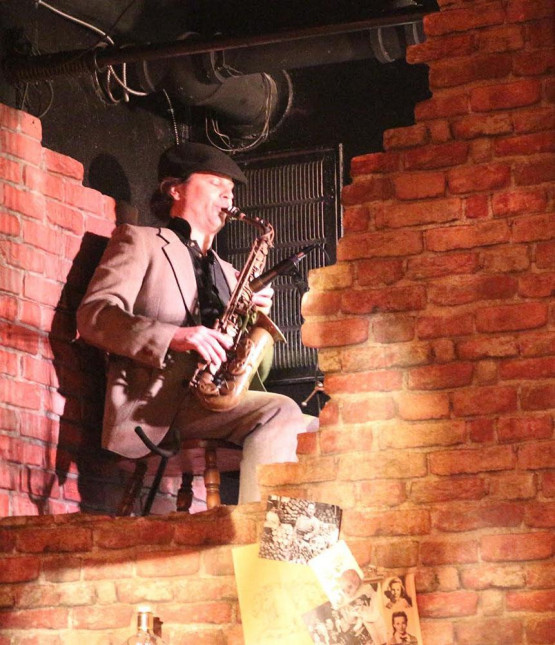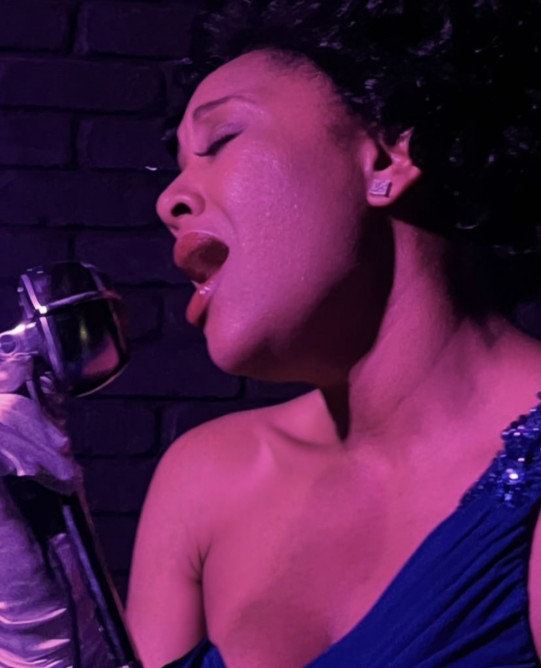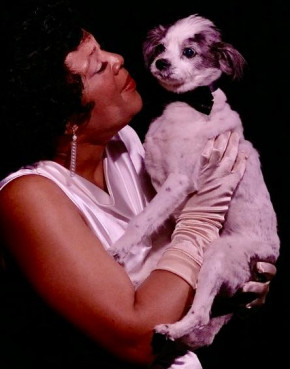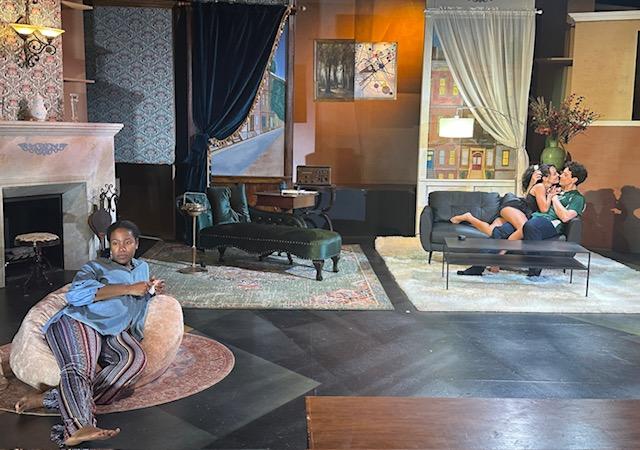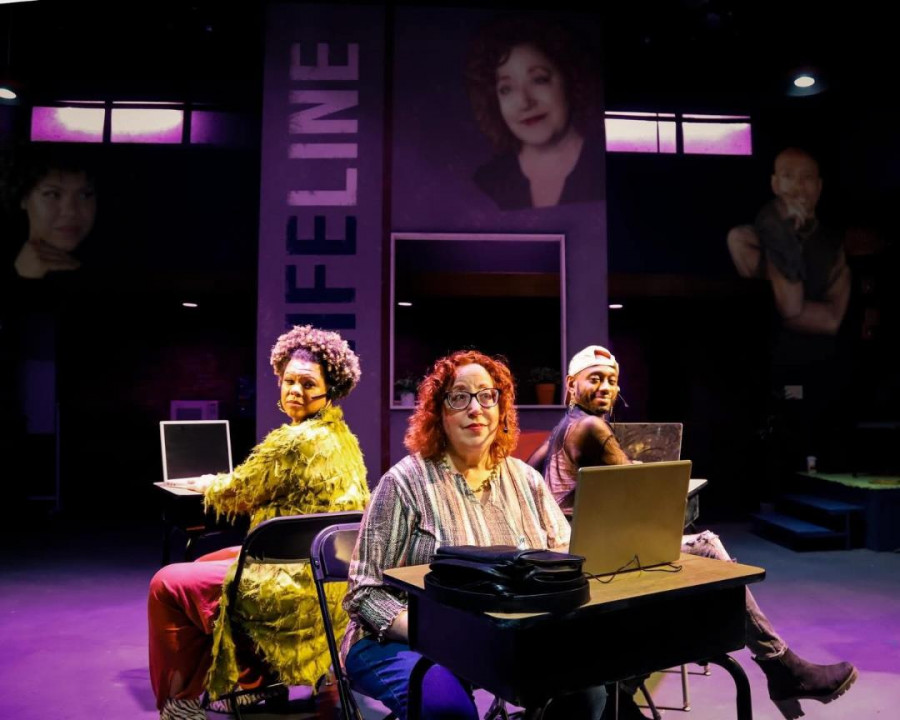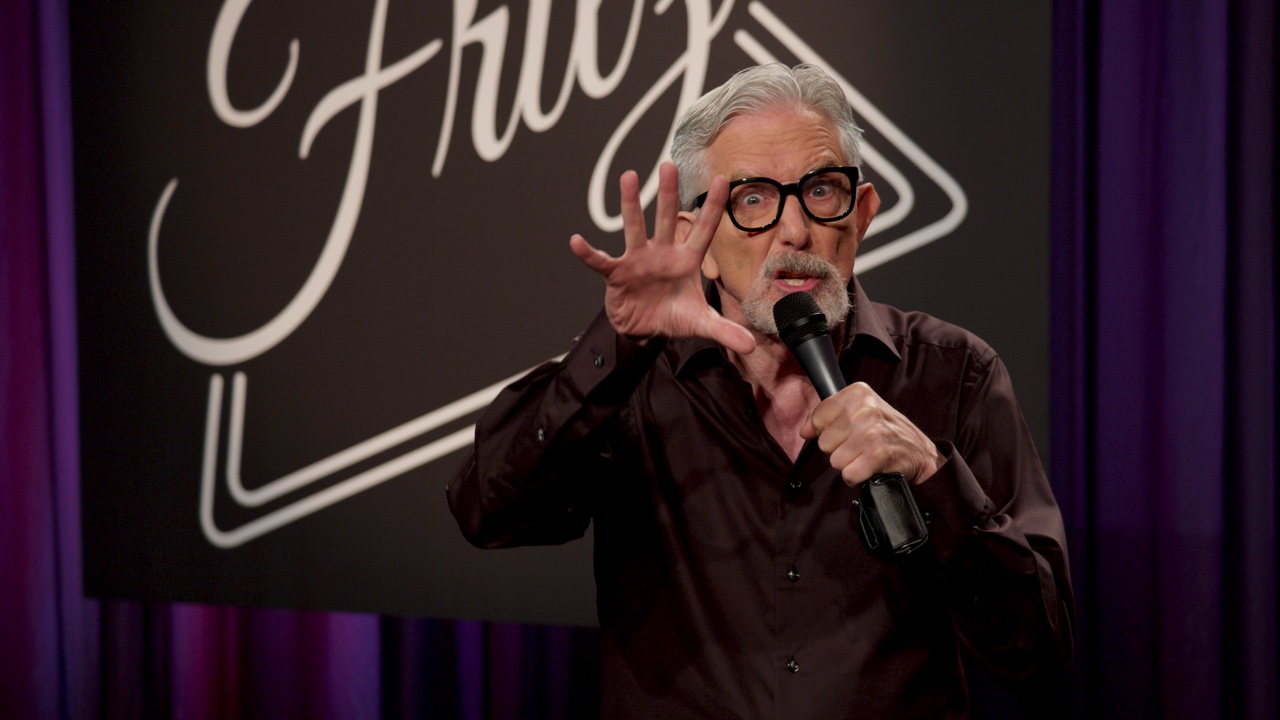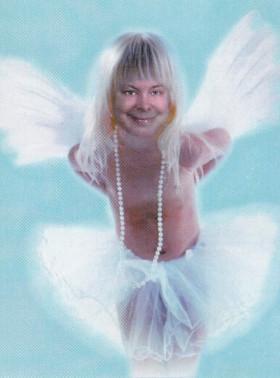- HOME
- CURRENT REVIEWS
- LADCC SPECIAL ACHIEVEMENT AWARDS 2025
- TICKETHOLDER AWARDS 2025 - Part One
- TICKETHOLDER AWARDS 2025 - Part Two
- "WAITING FOR WALK"
- TRAVIS MONOLOGUES 2025
- FEATURES & INTERVIEWS
- MUSIC & OUT OF TOWN REVIEWS
- RANTS & RAVINGS
- MEMORIES OF GENIUS
- H.A. EAGLEHART: HIEW'S VIEWS
- TRAVIS ART FOR SALE - Collection 1
- TRAVIS ART FOR SALE - Collection 2
- TRAVIS ART FOR SALE - Collection 3
- TRAVIS ART FOR SALE - Collection 4
- TRAVIS ART FOR SALE - Collection 5
- TRAVIS ART FOR SALE - Collection 6
- TRAVIS ART FOR SALE - Saints & Sinners
- TRAVIS ART FOR SALE - Pet Portraits on Commission
- COMPOSER SONATA: Hershey Felder Portraits
- TRAVIS' ANCIENT & NFS ART
- TRAVIS' PHOTOGRAPHY
- PHOTOS: FINDING MY MUSE
- REVIEW ARCHIVES: WINTER 2025 to... ?
- REVIEW ARCHIVES: WINTER - FALL 2025
- REVIEW ARCHIVES: SUMMER - WINTER 2024
- REVIEW ARCHIVES: FALL 2023 - SPRING 2024
- A LIFE IN PHOTOS [1946 - 1996]
- A LIFE IN PHOTOS [1997 - 2015]
- A LIFE IN PHOTOS [2016 - 2018]
- A LIFE IN PHOTOS [2019 - 2021]
- A LIFE IN PHOTOS [2022 - 2023]
- A LIFE IN PHOTOS [2024 - 2025]
- A LIFE IN PHOTOS [2026 to...
- LA DRAMA CRITICS CIRCLE AWARDS 2024
- TRAVIS' ACTING SITE & DEMO REELS: travismichaelholder.com
- CONTACT THLA

EVERYBODY'S GOT ONE
CURRENT REVIEWS
by TRAVIS MICHAEL HOLDER
"Critics watch a battle from a high place then come down to shoot the survivors." ~ Ernest Hemingway
Dad's Leg
Photo by Austin Ciezko
THROUGH MAR. 8: Hudson Mainstage Theatre, 6539 Santa Monica Bl., Hollywood. www.onstage411.com
All My Sons
Photo by Craig Schwartz
THROUGH MAR. 30: Antaeus Theatre Company, 110 E. Broadway, Glendale. 818.506.1983 or Antaeus.org
Here Lies Love
Photo by Jeff Lorch
Mark Taper Forum
What a monumental achievement for artistic diversity in Los Angeles is the west coast debut of David Byrne and Fatboy Slim’s Here Lies Love, the first non-replica regional production of the four-time Tony-nominated Broadway musical to be seen anywhere. With clever design adaptations to make it work in the Taper playing space and direction by Center Theatre Group’s artistic director Snehal Desai, the production features an all-Filipino cast and, as Desai proudly stated in his opening night speech, it was developed by an almost entirely AAPI creative and design team.
The ingenuity here is exposing the inhumane injustices of Ferdinand and Imelda Marcos’ brutal dictatorship in the Philippines from 1965 to 1976 and managing to do so under the glittery camouflaging banner of a rousing disco-pop musical. Below the flashiness of Here Lies Love lurks a premonitory message showing how the Marcos’ bloody reign mirrors the frightening and ever-expanding dangers brought upon our own country by the corruption and pouty dysfunction dogging the obscenely aggressive administration of our current manbaby-in-chief.
Featuring the original concept and an outstanding score by one of my personal musical heroes David Byrne (who, I might add proudly, I first introduced performing with his Talking Heads to Los Angeles audiences during my tenure as talent coordinator of the Troubadour a few centuries ago), the origin of Here Lies Love is quite fascinating, based on Byrne’s obsessive research on the Marcoses.
It began as a 2010 song cycle concept album produced in a made-in-mythical-heaven collaboration with Fatboy Slim, who was instrumental in popularizing Great Britain’s “big beat” genre in the 1990s, and the title of the album was lifted from a comment made by Imelda Marcos when she first viewed the body of her husband, saying that she wanted the phrase “Here Lies Love” inscribed on her tombstone.
Byrne explained about the master plan back then:
“The story I am interested in is asking what drives a powerful person, what makes them tick. How do they make and then remake themselves? I thought to myself, wouldn’t it be great if, as this piece would be principally composed of clubby dance music, one could experience it in a club setting? Could one bring a story and a kind of theatre to the disco? Would that be possible and if so, wouldn’t that be amazing?”
The greatest risk taken in this production is the abandonment of the musical’s previous dance party setting. In New York, the entire orchestra section of the Broadway Theatre was removed to become a huge dance floor, virtually making the mezzanine the first row of traditional seating. Instead, Desai places the action in a Filipino TV studio as one of the country’s popular daytime televised variety shows replaces the New York premiere's dance-friendly nightclub surroundings.
Even with Desai’s visually glitzy staging and an ensemble featuring some knockout vocal talent and original choreography by William Carlos Angulo performed by a precision troupe of highly spirited dancers, still this reinvention of the original Broadway production barely masks one glaring weakness: a rather badly written book and confusing storyline that, without the razzle-dazzle, makes little sense as a historical timeline.
The evolution of Imelda Marcos in the show’s intermission-free 90-minute runtime from sweetly innocent farm girl to a real-life Cruella de Vil is a hard transformation to swallow. It seems here as though one incident, finding her notoriously womanizing husband (it’s said he fathered as many as 17 illegitimate children) in bed with his mistress Dovie Beams suddenly changes Imelda into the infamously hardened prima donna who, in her public quest to Make the Philippines Great Again, basically vows to take over the power while enriching and glorifying herself at the expense of her country.
Again… sound familiar?
In spite of the script’s impossibly expeditious metamorphosis of Imelda Marcos, Reanne Acasio does a remarkable job bringing the character to life despite the uphill task Byrne has left her to overcome. She is surprisingly believable as both the youthful impoverished Imelda and as the monster she becomes, doing her best throughout to smooth out the journey despite the Jekyll and Hyde-like character arc challenge she faces.
Joshua Dela Cruz is also a standout as her early boyfriend Ninoy Aquino, who leaves her in the dust to pursue political gain and later becomes a fierce adversary of her rise to power, as is Carol Angeli as her best childhood friend who, during her latterday Countess Dracula period, Imelda coldly has imprisoned after Estrella does an interview revealing the power-mad diva’s humble background.
In Desai’s altered vision, what was originally the role of the nightclub’s DJ who narrates much of the story, RuPaul’s Drag Race alum Aura Mayari becomes “Imeldaific,” a kind of alter ego shadow figure who mirrors Imelda’s extravagant lifestyle and well-documented passion for disco. Try as Mayari might—and as spectacularly as dressed by costumer Jaymee Ngernwichit—the role is oddly out of place, suffering from the lack of a convincing throughline that never pans out.
The highlight of the entire production is the eleventh-hour appearance of Joan Almedilla, the original Imelda when Byrne’s song cycle was first performed in concert at Carnegie Hall in 2007. As the grieving mother of Ninoy Aquino, who Imelda may or may not have ordered assassinated, Almedilla is astounding, delivering the musical’s most haunting balled, “Just Ask the Flowers,” over the casket of her martyrized son.
The design and creative aspects are all suitably grand, including Arnel Sanciano’s TV studio set, Marcella Barbeau’s lighting, Yee Eun Nam’s projections, and especially Ngernwichit’s incredibly colorful and evocative costuming.
Musical direction by Joe Cruz and Jennifer Lin does yeoman’s duty with the infectious and continually noteworthy score, but unfortunately one of the most conspicuous omissions hampering an otherwise well-appointed production is the music is prerecorded. The rather tinny and clearly passionless canned accompaniment considerably drags down the splendor of an otherwise lavishly appointed presentation.
Whatever its theatrical quagmires, this AAPI-spawned locally reborn reinvention of David Byrne’s passion project is a significant achievement; not only does it cleverly scrutinize and bring attention to a dastardly history of a time not long ago when an authoritarian political regime all but destroyed a country, it also pays homage to the courageous citizens of the Philippines’ homegrown People Power Revolution who bravely stood up to the madness and brought it to a stop.
This is truly an urgently important and most welcome cautionary tale that, beyond the flashes of the production’s overhead mirrored ball, its spashy costuming and choreography, and the casting of some splendid performers with praiseworthy vocal power, Here Lies Love is obviously meant to remind us as Americans of all colors and creeds that the people of our country now under seige have a duty to band together and end the insanity.
THROUGH APR. 5: Mark Taper Forum, 135 N. Grand Av., LA. 213.628.2772 or CenterTheatreGroup.org
Luca & Uri
Photo by Kelly Stuart
Playwrights’ Arena and the Victory Theatre Center
The first scene in Nicholas Pilapil’s intriguing new two-hander is actually what normally would be the last. It depicts the end of a beautiful decade-long relationship, leaving us an entire play to unravel what went wrong.
And that, dear reader, is the frustrating thing about Pilapil’s Luca & Uri, now world premiering at the Little Victory, because the answer is: nothing. There’s nothing wrong—or wrong enough—to make these bright and strong survivors give up so cavalierly on a love as perfect and worth saving as theirs.
Luca (Roland Ruiz) and Uri (Kurt Kanazawa) meet serendipitously at a party and instantly feel that old inexplicable zap of electricity they can only attribute to “kismet.” Luca jokingly tells Uri he’s intrigued by his “mirthful lack of charm” while Uri counters by wondering how the more practical and grounded Luca “could be so white.”
In the play’s sweetest and most satisfying moments, simple everyday joys such as when the lovers share their happiness over receiving a free container of sticky rice from their favorite takeout place, prove theirs clearly is a match made in theatrical heaven.
Within a day they’re smackdab in the middle of a nearly idyllic relationship despite Uri’s reluctance to believe such a thing could happen and, as magically conjured by Pilapil, their immediately intense feelings for each other are gloriously real and certainly something worth cheering on.
The unlikelihood of such a love at first sight kind of bond sweeping them both off their feet so rapidly is made plausible by the lovely, gossamer dialogue that makes it clear right away that such a thing is possible. Both men share a sense of humor and intellectual curiosity as well as, although it’s hard to explain, the ability to express themselves with the same rhythms, if you will.
Still, the rule of opposites attract is quite in evidence too. Luca is a commonsensical science professor with his feet firmly planted in academia, while Uri is a somewhat flighty postgraduate student studying mythology and folklore with an emphasis on queerness.
Their relationship may be based on a magnetic mutual attraction that initially circumvents their differences, but as their story unfolds from the ending to the beginning and then flashes at breakneck speed back and forth through key moments in the relationship, both their philosophical and practical differences keep them butting heads on a regular basis—that is when they’re not hot-bloodedly butting their other heads, if you receive my meaning (with a well-deserved nod to intimacy director Giovanni Ortega).
This constantly shifting timeline proves confusing at times, especially because the lovers’ aforementioned viewpoints often shift and frustratingly directly take on the others’ point of view—yet never at the same time. Thankfully, director Jon Lawrence Rivera stages the mercurial colliding events smoothly and often playfully, keeping the two lone actors with so much dependent on their skills moving and connecting with great passion and liveliness.
The frequent filmic changes of place and time handled by Kanazawa and Ruiz in blue light can get a bit tiresome and sometimes unnecessarily too complex, which made me long for a larger playing space than the Victory Center’s cramped second stage, but this is a small druther in an otherwise electric presentation.
Under Rivera’s exacting eye for tapping into our often self-destructive and labyrinthine human condition, these two exceptional actors keep our interest riveted on their characters’ journey, though all the while wary since we are privy to how things devolve over their decade together.
Kanazawa and Ruiz have an uncanny ability to make us totally believe these are two people deeply in love trying desperately to stay connected despite the distracting outside distractions of their careers and their individual maturation. Without these two exceptional actors and a director as keenly sensitive, Pilapil’s tale, even with his poetic language, could easily descend into melodrama.
All that said—and I picture my dear friend Jon Rivera on his well-deserved vacation lying out by the pool in his hotel in Hoi An saying, “Uh-oh, here it comes”—I did have one lingering quandary that dogged me watching Pilapil’s otherwise lovely, beautifully evocative play.
I try in my reviews not to give away plot points that should be left for the viewer to watch unfold but this time out, since the play begins with that concluding scene showing the couple breaking up, I guess I shouldn’t worry.
See, as much as I came to care for the characters of Luca and Uri, and as well directed, designed, and performed Pilapil’s tender love story was in the quest to bring it to life, in the final analysis the play felt devoid of a reason it needed to be told.
The fact is these two intelligent and well-matched lovers wanted to deserve, as Uri tells Luca, the “life I want to live,” I found it frustrating and unnecessary that in the end they were not allowed to find that together. Theirs is clearly a love not to give up on.
I truly believe great and true love can conquer anything and so, in that regard, perhaps I’m not capable of being as objective as I should be in the midst of sharing the most important and improbable love of my own in my often thorny time clinging for dear life on our wildly spinning planet.
Any relationship takes a lot of patience and the ability to make ridiculously hard concessions, so the fact that Luca wants to end things after many years working diligently to make it work left me feeling the play misses a satisfying resolution. Saying he wants to sever their relationship because he’s destroyed Uri’s dreams and feels he’s responsible for his lover abandoning searching for his personal windmills is an argument all too familiar to me.
I’ve spent the last 13 years fighting the same concerns, that as someone far older than the person I cherish more than anything else ever in my life, I’m holding him back from a future he deserves—and perhaps from finding a love that won’t be gone from his life far too soon.
Every time I dip into the quagmire of this emotional quicksand and try to convince my partner he should be looking for someone closer to his age with whom he’d have the ability to grow and mature alongside, he just rolls his eyes, calls me a silly goose, and we move on—together.
As much as I loved Nicholas Pilapil’s gossamer yet somehow hollow and heartbreaking Luca & Uri, watching this couple painfully go their separate ways was a huge letdown.
Instead of walking away and leaving Luca with tears streaming as he faces a solitary life, I wish Uri would have instead turned back at the last minute and asked, “So, what do you want for dinner?”
After all, I bet they still had a coupon or two for a free order of sticky rice from their favorite Thai place.
* * *
ADDENDUM: Well! All is not lost in the world after all! There’s a quick tableau at the very end showing Luca and Uri sitting together looking forward in silence with their arms draped around one another. I took it as meant to be another out of time moment recalling better days for the couple but au contraire!
Over his yummy-looking Vietnamese breakfast in Hoi An, Jon Rivera texted: “It's a hard ending, because the final scene is an epilogue, two years later after they got married. Uri shows his hand with a ring at the end. For better or worse, they are together!”
I told Jon it was a shame since this is live theatre they couldn’t have added a cartoon arrow floating in the air pointing at Uri’s ring finger. Maybe Pilapil should consider my “What’s for dinner?” line after all!
THROUGH MAR. 15: Victory Theatre Center, 3324 W. Victory Blvd, Burbank. 818.841.5421 or thevictorytheatrecenter.org
Amadeus
Photo by Jeff Lorch
Pasadena Playhouse
About 30 years ago I asked the lategreat dramatist and legendary theatre professor Leon Katz what the most memorable performance was that he’d ever seen. “Oh, without a doubt,” he said, “it was Nazimova as Hedda Gabler in 1926.” Leon was age 6. That performance, he told me, led to his lifelong career as a playwright, dramaturg, and his many years as a beloved teacher at Yale and UCLA.
I’ve also been obsessed with live theatre all my life, both as an audience member and performer since I was old enough to sing out about “carrots ‘n pertaters,” and as a teacher and reviewer for almost four decades. Although I never experienced seeing Nazimova perform live, over those many years I’ve seen some indelibly unforgettable performances myself that have stayed seared into my memory banks throughout my now dwindling time on this out-of-control planet of ours.
These include Ian McKellan in his one-man Acting Shakespeare, Christopher Plummer in both Barrymore and A Word or Two, Uta Hagan in Who’s Afraid of Virginia Woolf, Angela Lansbury in Mame, Zoe Caldwell in Master Class, and Kathleen Clalfant in Wit, as well as having the great privilege of working opposite Dame Margaret Leighton in The Night of the Iguana and also Dick Van Dyke and Chita Rivera in Bye Bye Birdie, later being totally knocked out by my lifelong friend Chit in one of her few non-musical performances in Chay Yew’s adaptation of The House of Bernarda Alba.
And speaking of brilliant performers, may I also add one of my personal theatrical heroes, the phenomenal Hershey Felder, who has over nearly four decades toured the world stepping uncannily into the skin of such luminary classical composers as George Gershwin, Dubussy, Chopin, Irving Berlin, Tchaikovsky, Beethoven, Liszt, Rachmaninoff, and Leonard Bernstein, all the while playing their virtuoso piano compositions and explaining the intricacies of those works in a language even us musical neophytes can understand.
Close to the top of this illustrious list is the staggering body of work from one of our time’s most heavily honored actors and my own two-time Best Actor TicketHolder Award recipient Jefferson Mays. When I first saw Mays in his Tony-winning turn in Doug Wright’s Pulitzer Prize 2004 play I Am My Own Wife I was hooked, a condition further solidified when he took on over 50 roles in his solo version of Dickens' A Christmas Carol at the Geffen in 2018 and later on Broadway in 2024.
When it was announced several months ago that Mays would play the coveted role of Salieri in Pasadena Playhouse’s much-anticipated revival of the classic five-time Tony and eight-time Oscar-winning Amadeus, my ol’ heart skipped a beat—something that actually my cardiologist wouldn’t find too surprising at this particular point in time, I’m afraid.
Italian composer Antonio Salieri, the complex and conflicted antagonist in Peter Shaffer’s greatest masterwork, garnered a Tony for Ian McKellan in its 1981 New York debut and F. Murray Abraham won the Academy Award for Best Actor for the 1984 film version that AFI chose as 53 in its list of the 100 best movies in the last 100 years.
Salieri is an almost operatic, impossibly athletic task for any actor to assay and no one—no one—has ever been better at doing just that than Jefferson Mays. From the first moments when he appears alone spotlit on the cavernous Playhouse stage, a broken, dying old man drowning in massive guilt and debilitating self-doubt, he commands the stage effortlessly as Salieri ruminates about his messy life and the lingering rumors that he was responsible for his nemesis Wolfgang Adadeus Mozart’s mysterious and untimely death at the age of 35.
Whether or not the whispers wafting through designer Alexander Dodge’s sumptuously baroque crimson and gold set depicting the late 18th-century Viennese court of Emperor Joseph II are true is something Salieri isn’t saying; if his compositions won’t bring him prominence in the history of music, at least his role as a possible assassin will.
Shaffer tackles many themes in Amadeus, from the ridiculousness of the ornate rococo world in which these members of Joseph’s lavish court live to whether or not there’s a God—and if so, is he beneficent as Solieri’s battle with his Catholicism demands he believe or is he just a mean motherfucker who, if he exists at all has, as Depeche Mode once suggested, a “sick sense of humor.”
No one gets Salieri as perfectly as Mays, who uses his well-trained vocal instrument as though playing a fine Stradivarius, unpredictably dipping, growling, soaring, and occasionally squealing at the highest of pitches through the role’s many soliloquies—and fluctuating from one impassioned chord to another with chameleon-like speed—all the while stealthily avoiding all the narrative traps so many other actors have fallen into.
Still, never does Mays resort to classical grandiosity; his performance offers an almost miraculous balance between grand Shakespearean-style oratory vs. the most authentic and universally recognizable of bedeviling human emotions.
As Shaffer’s admittedly highly fictionalized version of Mozart, Sam Clemmett (who gained recognition as Albus Potter in Harry Potter and the Cursed Child in New York and the West End) began as a bit of a disappointment to me, missing some of the deliciously immoderate and outlandishly entertaining spoiled child behavior others have brought to the role. Fortunately, as the tragic aspects of the great genius’ life begin to unspool and he descends into poverty and illness both mental and physical, Clemmett won me over completely.
The same is true of Lauren Worsham (another Tony-nominated veteran of Treanjak’s A Gentlemen’s Guide to Love and Murder), whose portrayal of Mozart’s wife, the comely wench with what Salieri calls her “sweet eatable mouth,” also quite doesn’t find her footing until the second act when she emerges more interesting as the more mature and world-weary Constanze.
Perhaps this is Shaffer’s fault in where his writing takes these two fine performers—or perhaps it’s an inevitable challenge to hold one’s own playing opposite an actor as hypnotically focal as Mays. This malady is actually the Achilles’ heel of the rest of this intrepid band of worldclass supporting players as well. Although this is a uniformly dynamic cast to be sure, when they’re onstage bouncing off of Mays’ Solieri, the other roles might just as well be played by elegantly costumed marionettes.
Still, there are several standouts, including the freakishly tall Matthew Patrick Davis as the socially diminished Emperor, Jennifer Chang and Hilary Ward as the gossipy Greek chorus-esque Venticelli, and John Lavelle as the foppish director of the Imperial Opera.
There are also some impressive musical moments lifted from Mozart’s most celebrated operas, particularly an arresting “Soave sia il bento” from Cosi fan tutte performed by sopranos Michelle Allie Drever and Alaysha Fox with the spectacularly gifted Jared Andrew Bybee.
Tresnjak’s staging is continuously striking visually, seamlessly moving his players through Dodge’s gorgeous but stationary set as though pawns on a massive chessboard, aided considerably by Pablo Santiago’s dramatic lighting, Aaron Rhyne’s projections that loom above the action like gargantuan specters, and especially Linda Cho’s exquisitely detailed period costuming built from scratch in the LA Opera’s costume shop.
Peter Shaffer has always been one of my most respected writers, someone continuously obsessed with the horrendous inequities seemingly inherent in the human condition. In Equus, perhaps my favorite play of the 1980s, one time driving through the English countryside with a friend and hearing a story about a local boy who blinded six horses with a metal spike, the fact that he could find no other more detailed information about the troubling act of violence haunted him until he wrote an entire fictionalized play about the incident to somehow try to put the pieces together in his mind.
Shaffer based Amadeus on Alexander Pushkin’s 1830 novella Salieri and Mozart which, as his play, was acknowledged as dramatic speculation. It’s as though Peter Shaffer suffered from a lifelong artistic OCD, a need to explore through real mystifying accounts of human nature, why the world is such a bewildering place and our species is so intent on explaining our existence through fantasizing inventions such as religion, mythology, and luckily for us all, through art.
Beyond the significant wonder of Shaffer’s Amadeus, there’s one major reason not to miss this spectacular presentation before it leaves Pasadena for what I believe will be a celebrated future.
No, even I am not old enough to have seen Nazimova as Hedda Gabler in 1926 or when she first performed the role 20 years earlier, but for the rest of my life I will be incredibly grateful to have seen Jefferson Mays make what I suspect will be theatrical history for his portrayal as Antonio Solieri.
THROUGH MAR. 8: Pasadena Playhouse, 39 S. El Molino Av., Pasadena. 626.356.PLAY or pasadenaplayhouse.org
Sylvia Sylvia Sylvia
Photo by Jeff Lorch
Geffen Playhouse
In a small but serviceable apartment in the Beacon Hill section of Boston, a young married couple deal with the sometimes agonizing prospect of being artists—in their case, as writers on a rollercoaster ride between fragile creativity and recognized literary achievement.
Sally (Midori Francis) has had a highly successful debut novel but is struggling mightily trying to churn out her long overdue second effort. With her publisher threatening to sue her for the return of her advance, Sally is in an agonizingly tough spot, not made better by the fact that her husband Theo (Noah Keyishian) has just won a major literary award and is in line for a coveted professorship at Columbia University.
“Art is not a competition,” Theo reminds his epically frustrated wife, who quickly responds, “You say as you’re winning.”
In Sylvia Sylvia Sylvia, now in its world premiere at the Geffen, Beth Hyland’s brilliant tragicomic examination of how ambition and jealousy can trump encouragement and the strain of how art can destroy the artist and shred any relationship in its path, proves to be a fascinating study.
Talent can be a demanding mistress and for Sally and Theo, as we observe their possible descent into tragedy, only Hyland’s ingenuity and humor makes the journey less painful.
It seems the pair is living in the early apartment of another married couple done in by their rivalry, infamous poets Sylvia Plath and her husband Ted Hughes. Sally has been inspired by the work and traumatic life of Plath, especially as she shares the four walls where the Hughes began their lives together. The book she struggles to write, you see, is a biography of the doomed poet. It’s her “millennial Bell Jar,” she explains.
Sylvia Sylvia Sylvia actually begins in the same apartment in 1958, where Plath and Hughes (Marianna Gailus and Cillian O’Sullivan) sit with their hands on a quija board attempting to determine what their future might bring. Plath’s unhappiness with the prospect of slipping into the role of dutiful housewife “pushing shopping carts and chewing my cud” while living in the shadow of her successful and then-traditionally misogynistic husband is clear. It’s the glaringly un-woke 1950s, of course, an era when it’s a wonder he didn’t demand her poetry be attributed as written by “Mrs. Ted Hughes.”
This was before the birth of their two children, Hughes’ eventual abandonment of his already mentally unstable wife and family for another woman, and Plath’s untimely suicide in 1963 at age 30. Her descent into depression and despondency is well documented in the disturbingly haunting poetry she left behind and still studied to this day. This may sound like heavy-handed subject manner for a play, but Hyland’s ability to keep things intriguing and even rather guiltily funny is what makes Sylvia Sylvia Sylvia such a major effort.
The apartment both couples inhabit 60-something years apart morphs continually though the decades from one era to the other. As Sally battles her demons trying to bring her idol’s trials to the page, the ghost of Plath keeps appearing to her, entering her former domicile through the refrigerator (“You’ve really gotta clean in there” she chides her torment-ee) to hover over Sally’s typewriter to lambast her that she has no business trying to theorize and fictionalize the story of her notorious ordeals and the fucked-up cards life dealt her.
Hyland’s gripping and darkly comic play is treated with admirable production values, from director Jo Bonney’s unique ability to meld both the drama and the otherworldly aspects of the tale together with fluid staging to its dynamic design elements.
The set by Studio Bent, which at first appeared to be a little bland and simplistic, surprises bigtime when, after the first blackout, suddenly and at lightning speed it emerges as a completely refurbished and modernized version of its 1958 incarnation. As the play progresses, Bonney and the designers let us see more and more of the mechanisms of how this almost magical transformation works, thus making us privy and surely intentionally laying bare the play’s uncanny pilgrimage from inspiration to psychosis.
The production is greatly enhanced by Lap Chi Chu’s eerily atmospheric lighting and the genius sound plot from Lindsay Jones that evokes shaded hints of Bizet’s classic opera Carmen following the themes of the play and the moods of its emotionally challenged inhabitants.
The performances of Francis and Keyishian are the more affective, she navigating Sally’s ever-deepening hysteria with convincing skillfulness and he providing a wonderful counterpoint to his wife's progressively more worrying hysteria. Keyishian has the most difficult task, creating a softspoken, somewhat nerdy character who tries his best to be a dedicated feminist spouting all the familiar catch phrases that go with that distinction.
As Hughes, O’Sullivan does his best to bring the play’s almost textbook chauvinist to life but, despite a program credit for Paul Wagar as dialect coach, it seems this actor obviously missed taking advantage of the guy's expertise.
I had the most trouble, however, with Gailus’ interpretation of Plath, a turn full of missed opportunities. I was quickly put off by her overly confident and self-absorbed performance, many of her lines oddly delivered straight out to the audience as though she was doing her own one-person show. Hers might have been a worthy delivery for a Noel Coward drawing room comedy touring the English provinces in the 1930s, but it’s jarring out of place in this otherwise notable production.
Any writer, I assume, knows what it is to suffer that dreaded condition known as writers’ block and methinks it’s a strong probability that Hyland knows the trauma of dealing with it firsthand. I haven’t known any writer in my life—myself included—who hasn’t experienced it at some point.
I can’t help but wonder if this familiar affliction wasn’t the original impetus for writing Sylvia Sylvia Sylvia and personally, I couldn’t be more grateful she chronicled that malady with as much understanding and sympathy—and humor—as she has here. In a fair world, although this impressive world premiere could hardly be more richly mounted than at the Geffen, it will have the celebrated future far beyond Westwood it so deserves.
THROUGH MAR. 8: Geffen Playhouse, 10886 Le Conte Av., Westwood. 310.208.5454 or geffenplayhouse.org
The Typist
Photo by Lizzy Kimball
Hudson Guild Theatre
Playwright Shem Bitterman has an uncanny knack for evoking a mood both untraditional and yet familiar—sometimes uncomfortably so. As with last year’s breakout hit The Civil Twilight from the same producing team, his newest two-hander, The Typist, now debuting at the Hudson, again proves his provocative storytelling is a treasure.
Bitterman has a distinctive gift of being able to bring two highly diverse characters together in one room and make them box and spar verbally until it’s revealed just how much they actually have in common.
Once again, Bitterman has managed to create a two-character play and present it with a run time of almost 100 intermissionless minutes while keeping us engaged throughout. We’re swept immediately into a past world unlike our own, this time out a dingy basement apartment in Greenwich Village in the early 1960s. It’s a disordered, claustrophobic little place littered with abandoned wads of typewriter paper scattered under a small writing desk and empty or nearly empty liquor bottles strewn everywhere.
The dysfunction of the place is perfectly conjured by this year’s LA Drama Critics Circle Lifetime Technical Design Award winner Joel Daavid, whose two-story set is one of his best. It includes a bank of grimy windows at the top of an upstage brick wall revealing a series of brownstones at street level and inventively, at one side, a literal hole in the wall has been blazed into the stone where saxophonist Alexander Andresen sits perched throughout the performance at the ready to wail some wonderfully discordant jazz standards of the period during scene changes.
The apartment is the prison-like hiding place of a typically angst-ridden and obviously counterculture-oriented novelist with more monkeys on his back than Emile Borel ever considered. Dave (Noah James) is painfully retching out his attempt at the Great American novel with enormous difficulty and from the state of his living quarters, the guy’s been at it for some time.
Into this personal chaos comes a young midwestern transplant (Evangeline Edwards) dressed in perfectly tailored toreador pants and a sporting a series of pillbox hats, someone who’s clearly a newbie to the mean streets of the big city. Suzanne has answered Dave’s ad in the Voice for someone to type his mess of a manuscript and of course, these are two people who could not possibly be less compatible. In other words, the stuff from which a remarkable story can be built and Bitterman builds it handily.
As several months go by and the relationship between Suzanne and Dave develops and unravels and resurrects itself again, what in lesser hands might become predictable never makes such a descent into the ordinary. These are two people we are meant to care about and the quick-witted, always edgy dialogue and situations generated by the facile mind of a master wordsmith I wholeheartedly believe will give The Typist a richly deserved and enduring future.
This world premiere of what is an extremely promising new play, however, becomes a decent but ultimately unsatisfying first pass under awkward and often somnambulant direction.
Edwards is one of the LA theatre community’s sturdiest and most reliable talents but here she takes a bit of a misstep, something I can only attribute to the lack of a strong directorial eye to help shepherd her on to create a more interesting character arc.
Her Suzanne is surprisingly devoid of the usual layers of emotion one would expect from an actor as gifted as she. As written, there’s definitely an underlying strength and scrappiness to the character, something this naive 80-word-a-minute Iowa business school typist has to struggle to break through. If at the beginning Edwards gave us more Lauren Bacall assurance and ballsiness rather than being all vulnerable Judy Holliday quirkiness, the outcome of her relationship with the troubled writer would be a far more satisfying adventure to follow.
The other explanation for this letdown might be due to having to work only opposite James as her costar. As Dave, the otherwise notable actor also misses in most regards, coming off as an even more idiosyncratic one-note copy of early Pacino-esque Little Napoleonitis—albeit without the charisma to make it work.
Again, more judicious guidance from director Jeremy Wechsler might have helped tone down his annoyingly self-assured cockiness. James starts as such a high pitch—all the while shouting his lines in the 43-seat Hudson as though he was trying to reach the third balcony at the Chandler—that when his character at one point has an emotional breakdown and is carted off for a stay in Bellevue, since his delivery is as shrill and out of control as where it began, there’s no new place for him to go to get there.
Shem Bitterman’s latest fresh and fascinating character study is like a diamond in the rough whose gleam still needs a final polish. It deserves a future production with better direction, albeit with Joel Daavid’s evocative set coming along on the journey. The Typist is part Twain, part Kerouac, with a little touch of Neil Simon sneakily peeking through—and unlike everything I usually have to say about Simon, this time that’s actually meant to be a compliment.
THROUGH MAR. 9: Hudson Guild Theatre, 6539 Santa Monica Bl., Hollywood. playswithpeople.ludus.com
Lady Day at Emerson's Bar and Grill
Photo by Skye LaFontaine
Space Pirates Theatre Collective at the Zebra Room
As we enter the intimate Zebra Room in East Hollywood, we find ourselves enveloped inside a somewhat grungy yet atmospheric long-gone Philadelphia nightspot in the spring of 1959, site of Lanie Robertson’s flawless Outer Drama Critics and Tony Award-winning theatrical masterpiece Lady Day at Emerson’s Bar and Grill.
Although any critic worth his salt tries desperately to be objective, in full disclosure Robertson is a treasured friend and author of Nasty Little Secrets, the play in which I appeared and, thanks to his indelible writing, won a staggering number of awards and honors nearly 25 years ago playing Joe Orton’s lover-executioner Kenneth Halliwell. This does not make me as biased as one might expect, however, since I first praised the amazing Lady Day over a decade before he came into my life personally.
Emerson’s Tavern at 15th and Bainbridge in South Philly was hardly the first choice for Billie Holiday (played here by the ironically named Bessie D. Smith) as the proper venue to display her legendary wares, something the infamously troubled diva is quick to point out with a stink-eyed sideward glance to her last accompanist-slash-manager-slash-reluctant caregiver Jimmy Powers (the extremely gifted jazz pianist Alonzo Malik Pirio) seated at his piano waiting nervously for her to start singing.
“There’s heaven and hell,” Holiday admits to us as we double for her original audience at the seedy little jazz club, “and then there’s Philly.”
The glory days of Holiday were sadly long gone by the time she appeared at Emerson’s that night some 67 years ago. As she struggles to stay upright through her blurry-eyed Gilbey’s haze, between songs she seems obsessed to spill out to us, her captive ghostly guests, the horrifying pain and nearly insurmountable trials of her tortured life. Her memories are dulled and her voice trails off into a raspy growl thanks to her many years of drug and alcohol abuse.
Unlike those in attendance at the real Emerson’s so long ago, we are privy, nearly seven decades later, to the fact that this appearance is in a room she had played before her fame—and where she now appears despite losing her cabaret license as a convicted felon—was one of her last. Holiday would be dead of cirrhosis of the liver from rampant substance abuse four months later at the age of 44.
Produced by the uber-enterprising new Space Pirates Theatre Collective under the keenly focused direction of Skye LaFontaine, Robertson’s Lady Day is perfectly placed in this tiny underground nightclub in the historic building that once housed Charlie Chaplin’s first studio. It’s about as unglamorous as I imagine Emerson’s really looked back when Holiday’s well publicized woes kept her from basking in her former glory.
As point of reference, one defiant earlier time Holiday notoriously arrived in a limo and dressed in furs for a drug charge arraignment directly from a sold out appearance at Carnegie Hall.
In this reverent revival, Robertson’s script is still as riveting as ever, craftily incorporating some of the most memorable Holiday hits, including “God Bless the Child,” “Good Morning, Heartache,” and two tunes she composed herself, the jarring and ever-haunting “Strange Fruit” and my personal favorite, “Don’t Explain.” Yet, as we sit captivated listening to some of the best jazz and blues standards ever written or performed, we’re also given a vividly shocking history lesson about how black artists were treated in Holiday’s day, especially in the South.
Between songs, Smith wanders around the stage sipping gin as Holiday haltingly recalls the drug-soaked and twisted story of her life, including her year in a West Virginian prison (“Which is double redundant,” she quips), despite Pirio’s efforts to drown out her narrative with his insistent piano introductions. Robertson, a master of creating art around the lives of historical figures, deftly captures the spirit of the angry, brutalized jazz priestess stricken by what someone had recently referred to her in print as Lady Yesterday and wondering aloud if she’d have been better off if she’d “moved on her pocketbook rather than her feelings.”
Coaxed onstage by Pirio as Powers after her initial protests that she can’t do it, memories of Holiday’s early days playing the Emerson energize the frail and teetering former star who, despite briefly finding her sea legs and insisting she’s “good” to us and to Powers, eventually breaks down.
I have been privileged in my time to see three amazing actors appear in Lady Day, the first in its 1987 LA debut at the now long-gone Hollywood Playhouse starring S. Epatha Merkerson during her Reba the Mail Lady days; then Audra McDonald, who won her sixth Tony Award when the play was revived on Broadway in 2014; and in 2019 my incredibly gifted friend and former Hurricane Katrina Comedy Fest costar Deidrie Henry, who became my Best Actress in a Musical TicketHolder Award winner that season for her performance as Holiday at the Garry Marshall Theatre.
There’s no doubt that Smith is quite riveting and certainly holds her own in the demanding role, offering a memorable and heartbreaking turn as the sadly deteriorating shadow of the great jazz pioneer but frankly, she struggles to overcome her youth and radiantly healthy appearance. As wonderful as she is in the role, I’d love to see her tackle it again in a couple of decades when the trials and tribulations of life make it less difficult to assay the suffering and physical erosion of Holiday. You know, when I’m 109.
There are two inspired additions to this production that need special praise. The first is executive producer Ben Zingos’ obsession to create the original ambience of a Billie Holiday appearance that resulted in him searching for the star’s personal favorite microphone. Explains Zingos:
“Holiday was famous for many things and made many things famous—one of those was the Shure 730b Uniplex Cardioid Crystal Microphone, an incredibly unique instrument for one of the most unique voices in music history. Originally designed for broadcasting, sportscasting, and political addresses, the 730b was made to deal with a very specific problem: feedback. More specifically, the feedback generated by the (at the time) loud recording and broadcasting equipment used commonly, the sound of play and crowds on the sidelines of sporting events, and the cheers of supporters at political rallies.
“Plenty of mics did this well enough at the time, but they were near-universally semi-directional or fully directional, making it very awkward for broadcast teams to share a microphone when sitting next to one another. And omni-directional mics were no good, because they would pick up all the feedback from whatever noise was happening in front of (or behind) those who were using it. Shure's solution? Try both! The Uniplex design is a simple but effective one: an omni-directional cardioid crystal microphone element, encased in a uniquely designed directional case. The case is completely solid on the back, blocking any and all sound coming from where the mic is faced away from, while the front is divided into four quadrants by a metal ‘cross’ shape that meets in the center to form a small circle.
"The actual openings for sound are spaced in four soundwave shapes that increase in length, and ever so slightly in width as they branch out to the solid sides of the case in each quadrant. This allows sound to easily get in from all directions in front of it, while practically cutting out all sound that comes from behind it. In a small studio, it can be faced upward and easily record the voices of multiple speakers circled around it.
“Billie Holiday took advantage of this in a wholly unique way for performance, manipulating the microphone and her positioning so that her voice entered the slits in the case at varying angles and with varying intensity, creating reverb within the case of the mic itself and further amplifying every unique, indescribable, and absolutely essential quality of her voice with a level of fidelity other microphone of the era simply couldn't match. She became so accustomed to using it, both live and on her records that it became inextricably linked to her artistry and is likely a large part of why later generations today are able to hear her voice in as much glory as we have grown accustomed to hearing it. Had she not happened upon it early in her career, music history as we know it might be completely different. It allowed her to express her incredible skill and talent as she intended it to be heard and that is why it was essential to us that we find a working one.”
The other memorable aspect of this fine revival happens late in the performance, after Smith has fled offstage and staggered upstairs to the Zebra Room’s dressing room—the place in the script where Holiday runs off to shoot up, returning a few minutes later lost in heroin-fueled euphoria.
Here, Smith returns with the sweetest little three-legged terrier under her arm as the actress’ own bow tie-clad pup Maprow makes a delightful cameo appearance as Holiday’s own constant canine companion. When her new costar gets a bit restless, Smith hands “Pepi” to Pirio and he gently delivers the newly minted star to a doggie bed made of discarded theatre curtains under his piano.
Obviously, this is where the clearly talented non-human performer was trained to stay but, since my partner Hugh and I were seated quite near the piano, Maprow soon somehow realized I was a kindred spirit and hesitantly trotted over to me for a lovely extended head-pet marathon. That’s what I call immersive theatre at its best and my unexpected offstage inclusion in the performance as dog wrangler was totally embraced—quite literally.
Lanie Robertson’s uncanny ability to bring one of the greatest figures in American musical history back to life with his Lady Day at Emerson’s Bar and Grill has been lovingly resurrected by the fresh-faced Space Pirates Theatre Collective. It’s an accomplishment that makes me confident this is only an impressive introduction to our parched culture-starved desert climes of an admirably scrappy new company. Welcome!
THROUGH MAR. 6: Space Pirates Theatre Collective at the Zebra Room, 5176 Santa Monica Bl., Los Angeles. www.eventbrite.com
My Son the Playwright
Poto by Jeff Lorch
Rogue Machine
It has come to my attention just now that listening to Debussy’s Clair du lune while attempting to write about a new play by Justin Tanner is simply not feasible. I’m not sure what is. Scriabin, maybe? Or Stockhausen? Varese? Yoko Ono?
Tanner, whose early works at the now iconic Cast Theatre beginning in the late 80s, such as the Pen West Award winner Pot Mom, as well as Teen Girl, Coyote Woman, Tent Show, Bitter Women, and the 10-year run of Zombie Attack, not only began the careers of such artists as Laurie Metcalf and French Stewart, it put our scrappy Los Angeles intimate theatre scene on the map and made the LACC-bred playwright something of a living local legend.
I had the privilege of working alongside Tanner in that other LA theatre counter-culture superstar Michael Sargent’s American Nympho in the late night serial The Strip: A Living Comic Book at the lost and dearly lamented Evidence Room in 2002, where each week us game performers would receive our scripts by Thursday night, rehearse once, and then each Saturday at midnight would perform new uber-wacky live episodes of three mock soap opera stories by Tanner, Sargent, and Patricia Scanlon as her notorious Hildy Hildy in what the LA Times then referred to as “savagely funny renegade hilarity” reminiscent of “R. Crumb meets the Cockettes on a bender.”
In 2009, Tanner’s Voice Lessons, in a much-extended run at the Zephyr and later Sacred Fools, also starring his then-fervent disciples Metcalf and Stewart, was swamped with award nominations, but it was his newsmaking antics with his 2005 production Oklahomo! at a small theatre in Burbank that raised the writer to undying eminence for me.
Justin’s deliciously irreverent take on one of the 20th century’s sappiest musicals featured a small gay theatre company presenting an unauthorized all-male version of the classic Oklahoma!—and the playwright brazenly typecast himself as the show’s abrasive director who suffers a nervous breakdown during rehearsals.
When the Rodgers and Hammerstein Foundation found out about the production, they immediately issued an official Cease and Desist order demanding the production be shut down. Instead of stopping performances, however, Justin Tanner wrote in a new ending scene, with representatives from the Foundation (played by actors) rushing from the back of the house shouting “STOP!” and waving court orders. Oklahomo! defiantly continued its run to sold out houses.
Anyone who knows Justin knows his performance as that out-of-control director in Oklahomo! was hardly a stretch for the guy. Tanner’s personal reputation for being a tad… volatile, may I say?… is nearly as notorious in LA theatre circles as his outrageously off-centered and genuinely hilarious plays themselves.
In his maturing years, Justin has come to work diligently on his demons—and his plays have become more and more autobiographical along the way. Such was definitely the case with his last offering, Little Theatre, which three years ago began his tenure as Rogue Machine’s resident playwright and almost uncomfortably dredged up his early years and lingering trauma initiated during his beginnings at the Cast Theatre.
Still, as Justin conjectures in My Son the Playwright, his newest and most autobiographical play yet, now debuting in Rogue Machine’s upstairs second space, “trauma can be really good for creativity.” If that truly is the case, Justin Tanner’s theatrical fertility might be entering its epic stages.
When I first heard that this new work was more personal than any that came before it and Tanner would be performing it as a solo play, I have to say my first reaction was a bit apprehensive. Although I consider this guy a longtime friend-adjacent, when I wrote a review of Little Theatre that wasn’t exactly a rave, I had the impression my opinion wasn’t exactly taken as constructive criticism.
I decided to brave the possible upcoming firestorm to check out My Son the Playwright and I’m glad I did. Indeed, this is Tanner’s most personal play and as so, it’s not only both courageous and painful, it ultimately emerges as a fascinating monograph laying bare how personal compulsions can foster something akin to great art—and how life’s repeated letdowns and early familial cruelty can blur the edges between them. “Disappointment,” we’re reassured, “breeds character.”
In a two-act format, Tanner plays both a young El Lay playwright overwhelmed by massive career disappointments—obsessively fueled by drugs, alcohol, and a penchant for casual sex (“It’s like popping Kit Kats”)—and his equally dysfunctional rage-prone father who sees himself as even more of a victim than his son does.
Both characters kvetch incessantly about the other and how they’ve been treated, something that emerges most of the time as though we, the audience, are a cadre of mental health professionals studying a subject trapped in front of us like a character on an episode of Twilight Zone being studied by aliens.
Act One begins with a ringing phone in a cramped and blandly impersonal empty apartment (a perfect canvas for designer Mark Mendelson in the former Matrix’s tiny upstairs storeroom turned into a unique playing space in 2023) until Douglas, the father in question, emerges angrily from a side room accompanied by the sound of a flushing toilet.
It’s his son James on the phone, whose tardiness in his promised visit to Douglas’ Monterey Peninsula home has already reached the three-hour mark. When he finally ends the call, Douglas turns to us to lash out about what a loser his kid is. “He’s a playwright,” he shares in his frustration. “Not exactly the field a dad wants his son to go into.”
During his 45-minute rage-filled diatribe going off on his offspring, he all but kills an entire decanter of gin but somewhere, although he blames his “succubus” ex-wife for James’ many problems, underneath there’s another layer where a well-hidden and somewhat twisted love for his son lingers—as well as a bit of jealousy that James openly embraced his homosexual nature while he spent his entire life suppressing his own similar tendencies.
After a break to rearrange furniture and add a few movie posters to indicate the son’s equally claustrophobic LA apartment, Tanner reappears looking equally distraught under a youthful wig as James frantically searches the place for his missing bag of weed while letting us know how agonizing it is to drive up the coast to see his father without being sufficiently wasted.
The two men, although each rants to us about the horrors of dealing with the other, are in many ways like the same person. This is something Tanner, with the help of his longtime directorial collaborator Lisa James, works hard to overcome with subtle body language. Where Douglas has the tendency to physically pull into himself and bend deeply from the waist to somehow make himself smaller, James’ demeanor is large and even commanding, arms spread apart grandly to make his points.
It may be an understatement to say My Son the Playwright is exhausting, although it must be even more exhausting for Justin Tanner than it is for his audience. His performance is a huge commitment to his characters but hopefully, as the run settles in a tad, I think the play would be better served if it could be a little less frenetic and in-your-face.
I would think for even the most unfamiliar with the massive outpouring of work by Tanner, it would be nearly impossible not to realize how psychobiographical the piece is. At one point, when a quickie with an anonymous partner ends, his trick whispers into James’ ear, “By the way, I loved your play Pot Mom." It’s clear the line between fiction and reality is somewhat intentionally breached here.
My Son the Playwright is a phenomenal achievement, ironically both selfish and unselfish at the same time. Still, it’s impossible to leave the theatre without feeling, although you’ve been privy to something that in lesser and less comedically genius hands than Justin Tanner’s, as though you’ve been bombarded with more raw personal information than most people might want to absorb. I left not quite sure if I wanted to go home and write this review or to see if I could snag my monumentally talented though sometimes uncomfortably manic friend a prescription for Risperadone.
THROUGH MAR. 15: Rogue Machine at the Matrix Theatre, 7657 Melrose Av., LA. 855.585.5185 or roguemachinetheatre.net
Brownstone
Photo by Guy Manly
Open Fist at the Atwater Village Theatre
The premise for Catherine Butterfield’s Brownstone is both unique and clever, as separate storylines about three different pairs of tenants living in the same Manhattan brownstone at different periods of time in the 20th century are explored simultaneously.
The first couple resides there in the 1930s as the country tries to recover from the Great Depression. The brownstone at that point is still an elegant address, owned by an uppercrust New York industrialist. It’s where his rather spoiled socialite daughter Davia (Chelsea Spirto) is being pursued by a cheeky young journalist (Matthew Goodrich) as if they were characters in an old Phillip Barry play whose once prickly relationship goes from animosity and resistance to true love.
In the 1970s, at a time when the now crime-ridden streets of the once fashionable neighborhood have given way to poverty and urban decay, the brownstone has been divided into small walk-up flats, two wide-eyed young actresses just graduated from a midwestern college have arrived in the scary big city to achieve fame and fortune. How they survive their career challenges—and each other—is the basis of their third of the story.
The more pragmatic Maureen (Amber Tiara) is the stronger of the two since she comes from humble beginnings, but her roommate Deena (Rosie Byrne), a child of privilege being supported by her wealthy family, has promised her father if she’s not a star in two years, she’ll return home to Texas.
In the hanging chad days of the Bush Jr.-led years in the early 2000s, Jessica and Jason (Jade Santana and Issac W. Jay) are a hard-driven engaged power couple who have moved into the newly reclaimed and renovated building to begin their life together with nothing, they’re confident, but a yellow brick road ahead in their future.
Along the way, the journey of each couple is shaded by real life events and people: in the 1930s, both the loss of the Hindenburg and Hitler’s invasion of Poland changes the trajectory of the idyllic lovers’ life together, while in the 2000s, the rise of the dot-com bubble and the embracing of universally accepted “Greed is Good” mentality is part of what derails the future of Jessica and Jason’s relationship.
And ironically, when the world-weary and disillusioned Deena begins to fantasize a relationship with their nearby neighbor John Lennon, her disillusionment results in the fragile young woman having to depend on a lot more than the kindness of strangers.
The idea of this trio of divergent people sharing the same space in different decades is hardly a new concept, but Butterfield has created something fresh and special since all three tales of survival weave in and out of each other, surely the biggest challenge facing her husband and Brownstone director Ron West.
Much of West’s staging is fluid and innovative, but is somewhat done in by unwieldy production values, including a massive floor-to-ceiling, loud and wobbly white screen that’s dragged in and out from the wings for frequent scene changes to depict Maureen and Deena’s partitioned flat—something that could have easily been accomplished by a more creative lighting design.
Butterfield’s script is engaging but plagued by predictability and somewhat soap opera-y dialogue, saved by the crafty ways in which she manages to eventually weave elements of the three stories together. Still, the promise of Brownstone somehow falls flat. Where it could have been an absorbing treatise on blind ambition, avoiding social challenges, and the pitfalls of relying on approval from others—especially how those themes bring conflict to all three generations depicted—ultimately nothing is truly resolved, nothing about the play leaves us enriched or challenged intellectually.
Although West’s staging is beautifully and innovatively choreographed, it feels as though as a director he concentrated more on that visual aspect of it than helping this ensemble of six gifted performers find a path to develop their characters more fully and breathe real humanity into their individual voyages through time.
The promise here is a given, but as presented this time out, Brownstone misses becoming what could have been a far more satisfying experience.
THROUGH MAR. 14: Open Fist at the Atwater Village Theatre, 3269 Casitas Av., LA. 323.882.6912 or www.openfist.org
Lifeline
Photo by Ken Sawyer
Road Theatre Company
During the performance of the world premiere of Robert Axelrod’s intensely moving new play Lifeline at the Road, a series of factoids are flashed on the back wall of Desma Murphy’s incredibly contextural in-the-round set. One reads: “Since 2022, nearly 1.3 million LGBTQ+ young people have reached out through dedicated crisis support asking to be heard.”
Indeed, Lifeline takes place in the multi-purpose room of one such center as a group of four volunteers begin training to provide a voice willing to listen for one of our troubled society’s most vulnerable and at-risk members: queer teens and young adults who find themselves at the crossroads of whether they want to live or die.
These sessions are being conducted by two of the facility’s counselors, a clearly nervous relative newbie named Jen (Brittany Taylor Visser), who is obviously for some reason apprehensive about being on this side of the game, and her super-cheery supervisor Drew (Tommy Dickie), a confident veteran of such procedures.
As much as these colleagues do their best to work together and support one another on their potentially fragile quest to get their charges up to speed and ready to hit the phone banks, along the way their relationship begins to unravel. It seems Jen has just returned from a personal hiatus after facing a crisis of her own with a caller and the gay white privileged Drew wonders if she’s ready to resume this responsibility.
When she gently but firmly calls him out as possibly himself being someone not quite as able to identify with young people in need as he proudly claims to be, there’s a moment of tension between them they resolutely but uncomfortably strive to resolve.
Aside from their own shaky footing, we get to know each of the four trainees along the way, as well as a young gender-fluid homeless guitar player (Joh Chase, alternating with Lou Roy in the role not in Axelrod’s original script) who for the present calls the floor of the center their home and contributes to the proceedings by adding musical interludes to identify passages of time between the coaching sessions.
The trainees could not be more diverse. There’s Kai (Clifford J. Adams), a rather flamboyant club kid who seems able to breeze through the classes with a snap of the fingers and penchant for breaking into his titillating dance moves; Sarah Beth (Naomi Rubin), a disruptive and angry neurodivergent loner who can’t seem to keep from adding her opinion no matter how inappropriate; and Maya (Xoe Sazzle), a trans woman who's the best of the group at understanding what’s needed of her—and will probably make the best counselor of the bunch.
The fourth volunteer is an older suburban housewife named Patti (Amy Tolsky), who though well-meaning is somewhat of a visitor from another planet who might not ever comprehend the others’ more contemporary lingo and sensibilities or have the ability to get comfortable in these surroundings.
Getting to know and understand these eclectic characters and become privy to each of their individual stories is a lot to unpack here in the play’s 100-minute running time, but with the help of Axelrod’s highly accessible dialogue and this knockout ensemble of incredibly gifted actors, the inherent clumsiness and predictability of the storyline is quickly and expertly overcome.
The real glue that holds all the elements together here, however, is the sensationally malleable staging of award-winning director Ken Sawyer, who with this production makes his long overdue return to the Road, the company that first emboldened and honed his talents many years ago.
It was Sawyer’s idea to reconfigure the theatre’s proscenium stage into a four-sided arena playing space for this production, a conceit that brings the audience into the mix as the counselors and trainees acknowledge our presence during Lifeline’s training sessions as though we are guests invited to observe the process.
It was also Sawyer’s idea to add both the musical breaks and the projections of not only staggering real life statistics about the rampant numbers of queer youth contemplating suicide, but also images of the counselors as they grew up and how those sweet-faced kids became young adults who have probably seen more of our fuckedup world than anyone should ever have to endure.
The cast is uniformly excellent and the camaraderie between this intrepid band of players is something quite palpable—again, I suspect, thanks to the patient and beneficent leadership of Sawyer.
Adams is especially winsome as the continuously lighthearted Kai and Sazzle is a major standout as Maya, someone who has been through a lifetime of pain and social isolation but is still nowhere near giving up the strength to make things more equitable for our country’s legions of displaced young people.
Still, the heart and soul of this ensemble comes from the remarkable Tolsky, who delivers to us a breakable, discombobulated sweetheart achingly wanting to do her best, an uncannily relatable everyman we’re all left wanting to give a hug. Yet, although much of the play’s sly humor comes from her character, when the personal reason Patti wants so desperately to succeed at helping troubled youth is revealed, Tolsky succeeds bigtime in breaking our hearts—and sending at least one patron (ahem) out of the theatre totally unable to speak.
Axelrod, himself a volunteer with the Trevor Project, our nation’s leading suicide prevention and crisis intervention service for LGBTQ youth, has created a timely, urgently important work, a breath of compassionate fresh air as so much of our lives today seems tainted by racism and greed and people out to destroy everything the good people of our country hold dear.
“In the time you have been watching this play,” a final projection tells us, “1,060 calls have been made to the National 988 Suicide Hotline. We would like to dedicate this performance to those who were there to listen.”
Thanks for the cleansing generated here by each and every one of the committed artists who collaborated to bring Lifeline to the venerable Road Theatre stage; we all need it bigtime right now.
THROUGH MAR. 14: Road Theatre Company, 10747 Magnolia Blvd., NoHo. 818.761.8838 or RoadTheatre.org
Unassisted Residency
El Portal Theatre
Longtime Los Angeles weatherman Fritz Coleman retired in 2020 after four decades delivering his signature uncannily cheery forecasts on a daily basis but at age 76, his solo show Unassisted Residency, which plays once monthly at the El Portal’s intimate Monroe Forum, proves he’s still got the chops to deliver a jocular and lighthearted tsunami to his eager and most loyal fans.
Coleman began his career coming to LA to pursue his passion for standup comedy in the early 80s after first achieving success as a well-loved deejay radio personality in Buffalo, New York.
As the story goes, a producer at NBC caught his act one night at a local club and began to woo him to become a weatherman at KNBC-TV since our weather here was so consistent that he felt it needed a little on-air boost of humor to make it more interesting.
Delivering the daily forecast with a twinkle in his eye beginning in 1984 didn’t stop Coleman from continuing to chase his original dream by performing on local stages in several successful live shows, including his hilarious award-winning turn in The Reception: It’s Me, Dad! which played around town for several years to sold out houses.
Now, after leaving NBC four years ago, Coleman is back but the demographics have changed—or I might politely say… matured.
In my own case, as someone a year older than Coleman, his focus on finding the humor in aging is most welcome. In Unassisted Residency, the comedian talks about the challenges life has to offer in these, our so-called golden years, from physical deterioration to losing contemporaries on a regular basis to navigating the brave new world of technology and social media.
As his opening warmup act, the very funny and professionally self-deprecating Wendy Liebman notes, while looking out at the sea of gray hair and Hawaiian camp shirts in their audience, that Coleman chose to present his show as Sunday matinees so his target audience can shuffle our drooping derrières on home before dark.
Along the way, he also tackles subjects such as retirement communities, nonstop doctors’ appointments, incontinence, and Viagra, not to mention having grown up sucking in our parents’ omnipresent clouds of secondhand tobacco smoke and that generation’s lackadaisical attitude toward our safety and our health, all before moving on discuss to his all-new admiration for those heroic modern educators who during the pandemic had the patience to deal with zoom-teaching his grandkids.
The one thing he doesn’t talk much about is the weather—that is beyond mentioning how grateful he is that our current heat wave didn’t deter those gathered from venturing out of our caves and offering as a throwaway that one of the reasons he retired four years ago was climate change. Although he never says it, he doesn’t really have to; we get that even for someone as funny as Coleman, everyone has their limits when it comes to the potentially catastrophic future for our poor misused and abused planet.
Then when he launches into reminiscing about the amazingly incessant search for sexual gratification in our younger years (that time Stephen King once wrote when the males of the species all look at life through a spermy haze) and how that has changed since then. As a now single guy still looking for love—with some choice remarks about online dating sites—he tells a rather steamy tale about one date that proves it ain’t over ‘til it’s over, something of which I can definitely relate.
I first met Coleman in 1988 or 1989 when I did a feature interview with him as a cover story for The Tolucan (the more industry-oriented and less Evening Women’s Club-ish-pandering predecessor of the Tolucan Times).
He was gracious and charming and kept me laughing so hard back then that I couldn’t take notes fast enough, a knack he not only hasn’t lost but has sharpened considerably over the past 40 years. I couldn’t help wondering how many of the audience members at the Forum have been following him since then and for whom the topic of not-so gently aging hits home as dead-center as it did me.
This doesn’t mean you have to be 70-something to appreciate Fritz Coleman’s hilarious gift for creating homespun storytelling in his ever-extending monthly outing called Unassisted Residency.
My partner Hugh, who is a mere 42 years my junior and was quite literally at least three decades younger than anyone else in the audience last Sunday, laughed longer and louder than anyone else in the audience—perhaps a reaction to hearing me bitch continuously about getting old for the last 12 years?
NOW IN ITS THIRD YEAR! Plays one Sunday each month at the El Portal Theatre’s Monroe Forum Theatre, 5269 Lankershim Blvd., NoHo. For schedule: www.elportaltheatre.com/fritzcoleman.html


